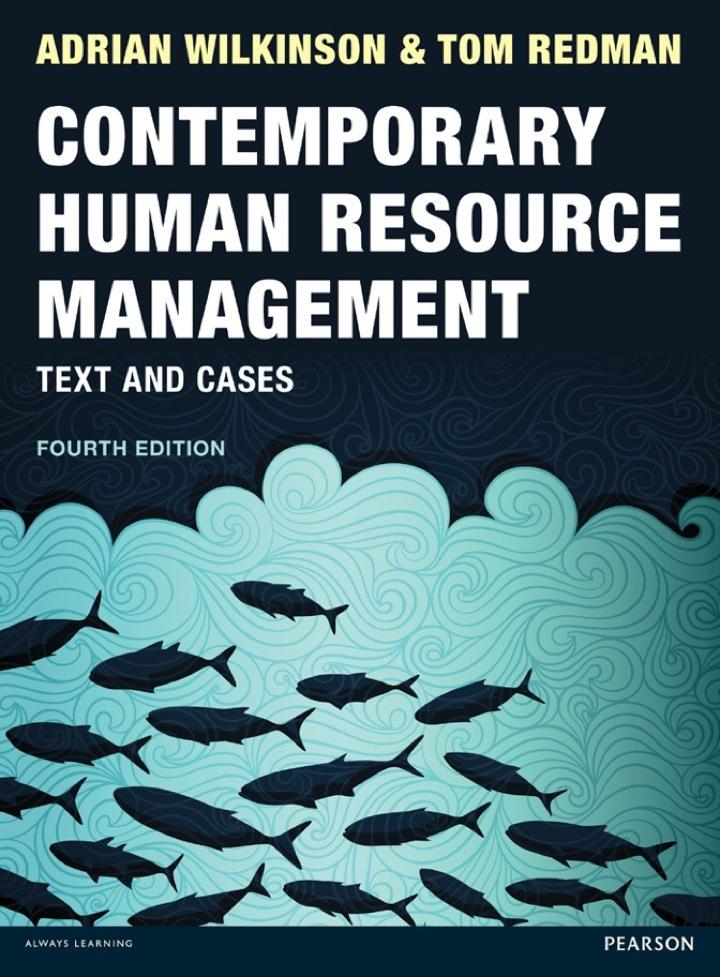After almost 500 years of a particularly exploitative form of colonial rule, a failed socialist experiment and
Question:
After almost 500 years of a particularly exploitative form of colonial rule, a failed socialist experiment and a bloody civil war, Mozambique underwent radical economic adjustment in the late 1980s and 1990s in line with the then prevailing neo-liberal orthodoxy.
While the latter had severely adverse consequences for large areas of an already fragile manufacturing sector, it also led to an – albeit limited – increase in foreign investment and a partial revitalization of the transport and tourism industries.
A nationwide survey of HR practices in Mozambique revealed little evidence of innovation or of leading edge practices. While most firms had a specialized people management function, the techniques employed remained personal, informal, but also top-down. At the same time, HRM techniques cannot be considered to be uniform ally ‘bleak house’ or ‘low road’; the ‘low road’
hypothesis is thus falsified. Rather, HRM practices seem to have much in common with those noted in other African countries; this would include a reliance on personal networks for recruitment, the use of informal training structures, and poor pay and working conditions being mitigated by a willingness by management to make informal concessions to workers in the event of personal difficulties. In contrast to the ‘low road’ model, Mozambican managers do not make use of rigid sets of rules, little communication, fixed bare minimum wages, and an unwillingness to depart from fixed procedures (cf.
Taylor and Bain 2003). The dominant ‘informal’ managerial style is founded on autocratic patriarchalism, underpinned by personal ties. On the one hand, external shocks to the Mozambican economy have resulted in large-scale job shedding that must have done much to erode any sense of mutual commitment. On the other hand, managers retain close personal contact with the workforce – inter alia, through general meetings – and remain willing to adjust terms and conditions of service in response to individual need. The survey would thus provide further evidence to support Harrison (2000) and Pitcher’s (2002) arguments that the Mozambican context is one characterized by long-term continuities, despite seemingly radical sociopolitical changes.
At the same time, the survey revealed evidence of a range of ‘best-practice’ techniques among a small minority of firms. While there is little doubt that the latter are likely to be best equipped to escape reverting to a low-wage, low-skill, low-value-added trajectory, it remains uncertain whether such a path is viable in a context of institutional weakness and cut-throat competition from abroad.
In summary, the survey revealed that relatively few firms make use of a full and complementary range of high-performance work practices. However, most firms have not reverted to the ‘low road’/‘bleak house’ model that has become a feature of people management in specific sectors within the advanced societies. Indeed, many firms rely on traditional patriarchal–authoritarianism, and are reluctant to concede their workers even basic benefits such as paid vacations and sick leave. On the other hand, many are willing to grant leave at short notice and/or advances on wages, in the event of individual workers experiencing personal difficulties. Contact is maintained with the workforce through irregular meetings, both scheduled and ad hoc, while the mode of firms made use informal on the job training. The dominant Mozambican paradigm of people management shares these common features with that found in many other tropical African countries; such practices represent the product of both adverse external environments, periodic systemic shocks and colonial and/or precolonial traditions.
However, in Mozambique, the ability of this highly personal/patriarchal managerial paradigm to engender any sense of mutual commitment is likely to have been eroded by episodic rounds of redundancies, while firms are unlikely to systematically invest in their people through formal training programmers or systematic career planning given a highly competitive environment.
Less principled rivals may not only gain a short-term cost advantage, but are able to poach staff from those firms who provide effective training and development.
The diffusion of higher-value-added production paradigms is only likely in a more supportive institutional context that encourages firms to buy into mutually advantageous sets of rules governing fair play (cf.
Marsden 1999), and which limits the rewards accruing to bad practice. While the more efficient enforcement of legislation may encourage the broader diffusion of ‘high road’ practices, their sustainability is, at least in part, contingent on the diffusion and reconstitution of supportive conventions (Dore, 2000); regrettably, this makes it extremely difficult to depart from the dominant existing paradigm.
Question
1 What are the key features of HRM in Mozambique?
2 Why do you think HRM in Mozambique has been characterized by many continuities?
Step by Step Answer:

Contemporary Human Resource Management Text And Cases
ISBN: 9780273757825
4th Edition
Authors: Tom Redman, Adrian Wilkinson





